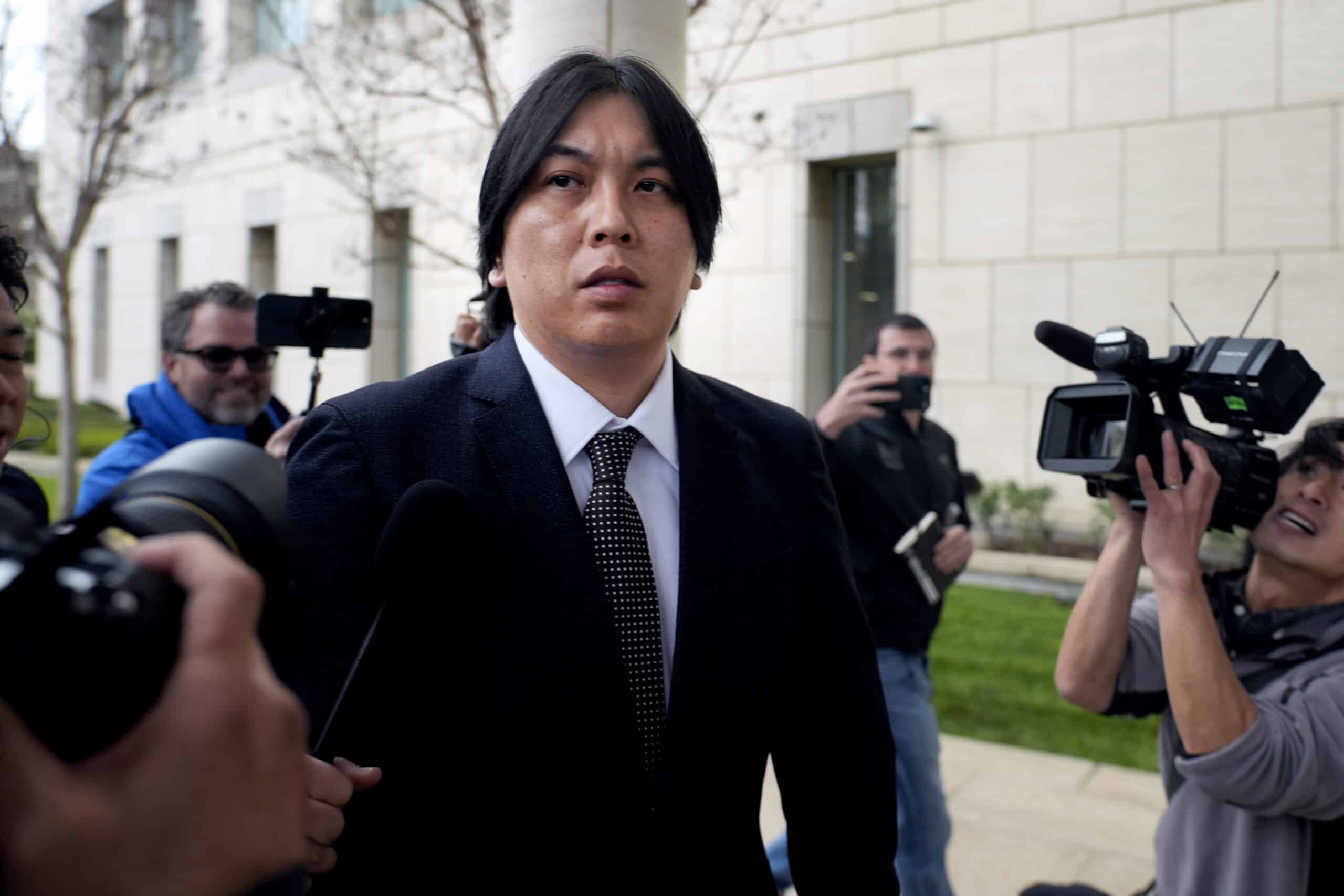Baseball star Ohtani’s ex-interpreter sentenced to prison for stealing millions

Ippei Mizuhara, former interpreter for Los Angeles Dodgers baseball star Shohei Ohtani expected to be sentenced for bank and tax fraud arrives at federal court on Thursday, Feb. 6, 2025, in Santa Ana, Calif. (AP Photo/Damian Dovarganes)
SANTA ANA – Shohei Ohtani’s former interpreter, who admitted stealing nearly $17 million from the Dodger slugger’s bank account to pay off illegal gambling debts, was sentenced today in federal court in Santa Ana to 57 months in prison.
In addition to the four years and nine months in prison, Ippei Mizuhara was also ordered to pay restitution of more than $18.1 million.
Mizuhara pleaded guilty in June to one federal count each of bank fraud and subscribing to a false tax return. The bank fraud charge could have sent him to prison for up to 30 years, while the tax charge carried up to three years in federal prison.
Mizuhara contended he committed the crimes due to a gambling addiction, but prosecutors said his actions went beyond gambling and into greed.
“Even if defendant is addicted to gambling, it cannot fully explain defendant’s conduct because defendant used the stolen funds for numerous personal expenses that had nothing to do with gambling,” prosecutors wrote in court papers.
The prosecutors pointed to Mizuhara using the stolen funds to buy baseball cards worth a total of about $325,000, and when the defendant asked Ohtani for financial aid to pay for dental work, the Dodgers star gave him a check for $60,000, but Mizuhara pocketed the cash and used the baseball player’s debit card to pay the dentist.
Also, Mizuhara did not sell off the baseball cards to pay his gambling debts to co-defendant Mathew Bowyer, who has also pleaded guilty and was scheduled to be sentenced April 4, prosecutors said.
“Further, and most compelling, when defendant actually won money from Bowyer (his bookie), he didn’t repay Mr. Ohtani or credit the account from which he had stolen the funds,” prosecutors said. “Instead, he instructed Bowyer to wire the money to defendant’s personal bank account (which the defendant had access to).”
Mizuhara’s motivation wasn’t addiction, it was “greed,” the prosecutors said. “Indeed, the full scope of the scheme was years in the making,” prosecutors said.
Mizuhara gained access to Ohtani’s bank account in September 2021 and changed contact information to his own devices, prosecutors said. He also started “impersonating” Ohtani when bank officials called to authorize wire transfers to Bowyer’s associates.
Mizuhara does not have the resources to repay Ohtani and has harmed him beyond that, prosecutors argued.
“Indeed, defendant’s conduct has harmed Mr. Ohtani’s greatest asset — his reputation and goodwill,” prosecutors said. (CNS)

